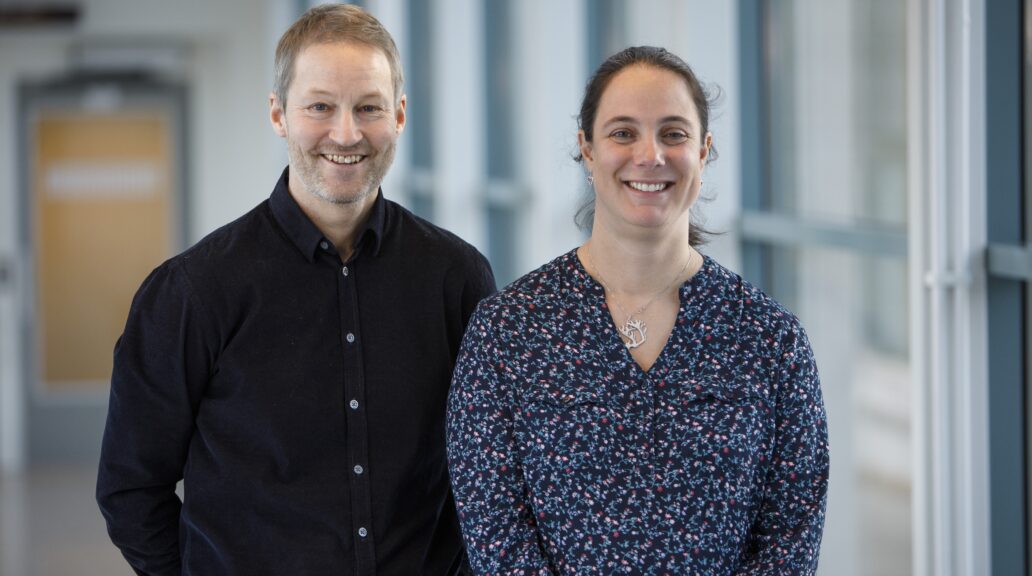Bernt-Eric Uhlin and colleagues initiated the multidisciplinary center Umeå Centre for Microbial Research (UCMR), a successful scientific platform for strategically recruiting top young researchers. The aim was to bring together experts from various disciplines to tackle challenging problems through interdisciplinary collaborations.
Aim to maintain the inclusive culture at UCMR
Fredrik Almqvist, a professor at the Chemistry Department of Umeå University, has been part of UCMR’s 20-year journey. Taking over the leadership with Marta Bally, an Associate Professor at the Department of Clinical Microbiology, at the year’s end after Yaowen Wu and Teresa Frisan, their goal is to maintain the inclusive culture that has been built.
“Marta and I are a team. An important part of our leadership is representing the diverse aspects of UCMR, a broad center with nearly 70 research leaders. It’s an incredibly inspiring environment, and it’s vital that everyone feels a part of it,” Fredrik states.
A Noble Prize-winning university
Umeå University has a proud history and a prominent position in molecular and microbiology, leading the field since the early 1980s. The 2020 Nobel Prize in Chemistry awarded to Emmanuelle Charpentier further highlights UCMR’s status as a “crown jewel” among Sweden’s 40 Linnaeus Centers of Excellence, with outstanding depth and expertise in each discipline.
Fredrik Almqvist and Marta Bally have two priority areas during their tenure until the end of 2026: Increasing UCMR’s focus on projects linked to clinical settings and building Biosafety Level 3 (BSL-3) labs for both in vitro and in vivo experiments at Umeå University.
“Involving clinicians can be challenging due to practical difficulties in balancing clinical service with research. However, we aim to create opportunities for more young clinicians to engage in research and establish a clearer connection to it. Projects could involve clinicians collaborating with data experts to gain new insights or working with bacterial biofilms on failed implants,” explains Fredrik.
“UCMR is primarily about basic research, but we also want to contribute to finding new solutions for treatments and current problems. In clinical settings, co-infections often occur, involving a mix of bacteria, viruses, and fungi, creating complex scenarios. But at UCMR, we have the expertise to start tackling these more complex infections.”
BSL-3 labs a vital issue
BSL-3 labs handle infectious pathogens that can cause severe disease, including viral diseases.
“A new in vitro lab with BSL-3 is coming in the future, but we are also pushing for an in vivo lab. It’s a vital issue for Umeå University’s research to remain competitive.”, concludes Fredrik Almqvist, who, besides his role at Umeå University, has co-founded QureTech Bio, a company developing new drugs to combat antibiotic resistance and infectious diseases.



